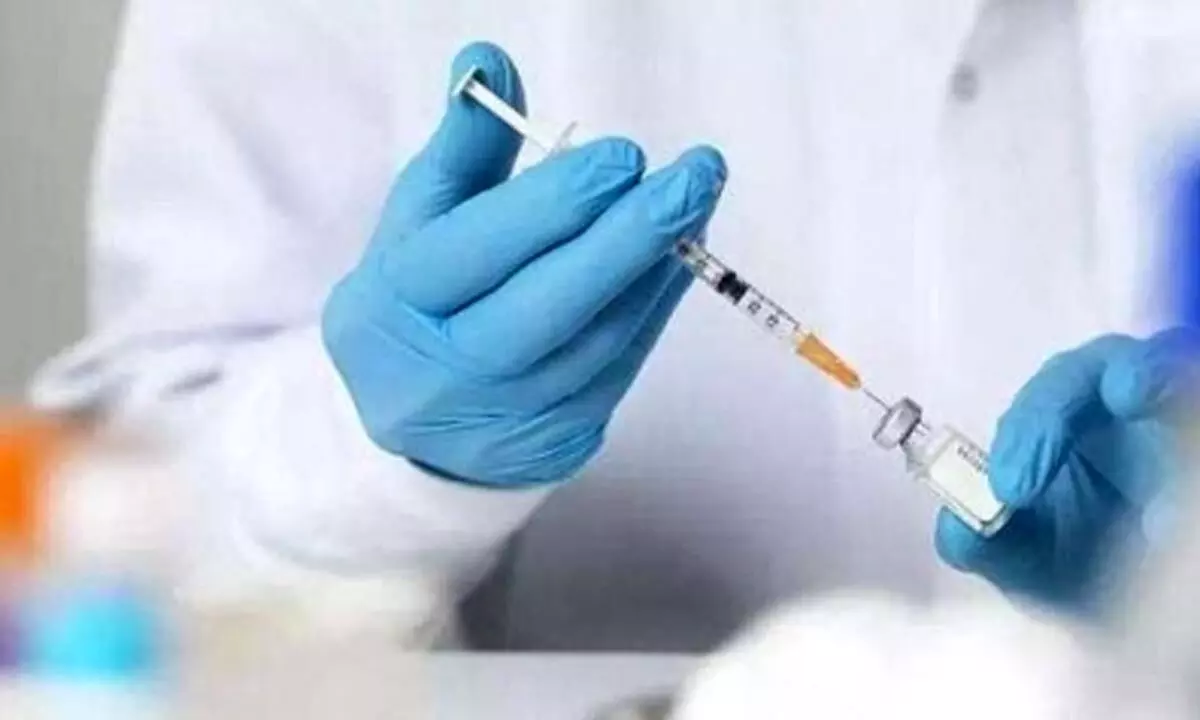Live
- M4M’ Hindi trailer launches at IFFI
- ‘RAPO22’ launches with grandeur
- Drug abuse eating into vitals of our nation
- Sai Durgha Tej gets special gift
- They always want me to win, and now I feel lucky to have been offered a story like ‘Zebra’: Satyadev Kancharana
- ‘Democracy first, humanity first’: PM Modi in Guyana's parliament on two countries' similarities
- PKL Season 11: Telugu Titans register third straight win to top standings
- Is Pollution Contributing to Your COPD?
- NASA Unveils Underwater Robots for Exploring Jupiter's Moons
- Additional Central forces arrive in violence-hit Manipur
Just In
Ghana first country to approve SII-Oxford made high-efficacy malaria vax

Ghana first country to approve SII-Oxford made high-efficacy malaria vax
Ghana has become the first country to approve a new malaria vaccine developed by the University of Oxford and manufactured by Serum Institute of India (SII).
New Delhi: Ghana has become the first country to approve a new malaria vaccine developed by the University of Oxford and manufactured by Serum Institute of India (SII).
The malaria vaccine -- R21/Matrix-M -- has been licensed for use in Ghana by the country's Food and Drugs Authority -- the first ever regulatory clearance by any country.
The vaccine has been approved for use in children aged five to 36 months, the age group at highest risk of death from malaria, which kills about 6,20,000 people each year, most of them young children.
It is hoped that this first crucial step will enable the vaccine to help Ghanaian and African children to effectively combat malaria.
The R21/Matrix-M vaccine has demonstrated high levels of efficacy and safety in Phase II trials, including amongst children who received a booster dose of R21/Matrix-M at one year following a primary three-dose regime.
"This marks a culmination of 30 years of malaria vaccine research at Oxford with the design and provision of a high efficacy vaccine that can be supplied at adequate scale to the countries who need it most," said Professor Adrian Hill, Chief investigator, R21/Matrix-M programme, at the Oxford University, in a statement.
SII provided vaccines and sponsored Phase III licensure clinical trials. It will also produce between 100-200 million doses per year.
"Malaria is a life-threatening disease that disproportionately affects the most vulnerable populations in our society and remains a leading cause of death in childhood. Developing a vaccine to greatly impact this huge disease burden has been extraordinarily difficult," Adar Poonawalla, CEO of the Serum Institute of India in a statement.
He added that the company will scale "up production of the vaccine to meet the needs of countries with high malaria burden and to support global efforts towards saving lives".
The R21/Matrix-M malaria vaccine is a low-dose vaccine that can be manufactured at mass scale and modest cost, enabling as many as hundreds of millions of doses to be supplied to African countries which are suffering a significant malaria burden.
The vaccine also contains Novavax's Matrix-M, a saponin-based adjuvant that enhances the immune system response, making it more potent and more durable. The Matrix-M adjuvant stimulates the entry of antigen-presenting cells at the injection site and enhances antigen presentation in local lymph nodes.
This technology has also been used successfully in Novavax's Covid vaccine and is a key component of other development-stage vaccines.

© 2024 Hyderabad Media House Limited/The Hans India. All rights reserved. Powered by hocalwire.com






